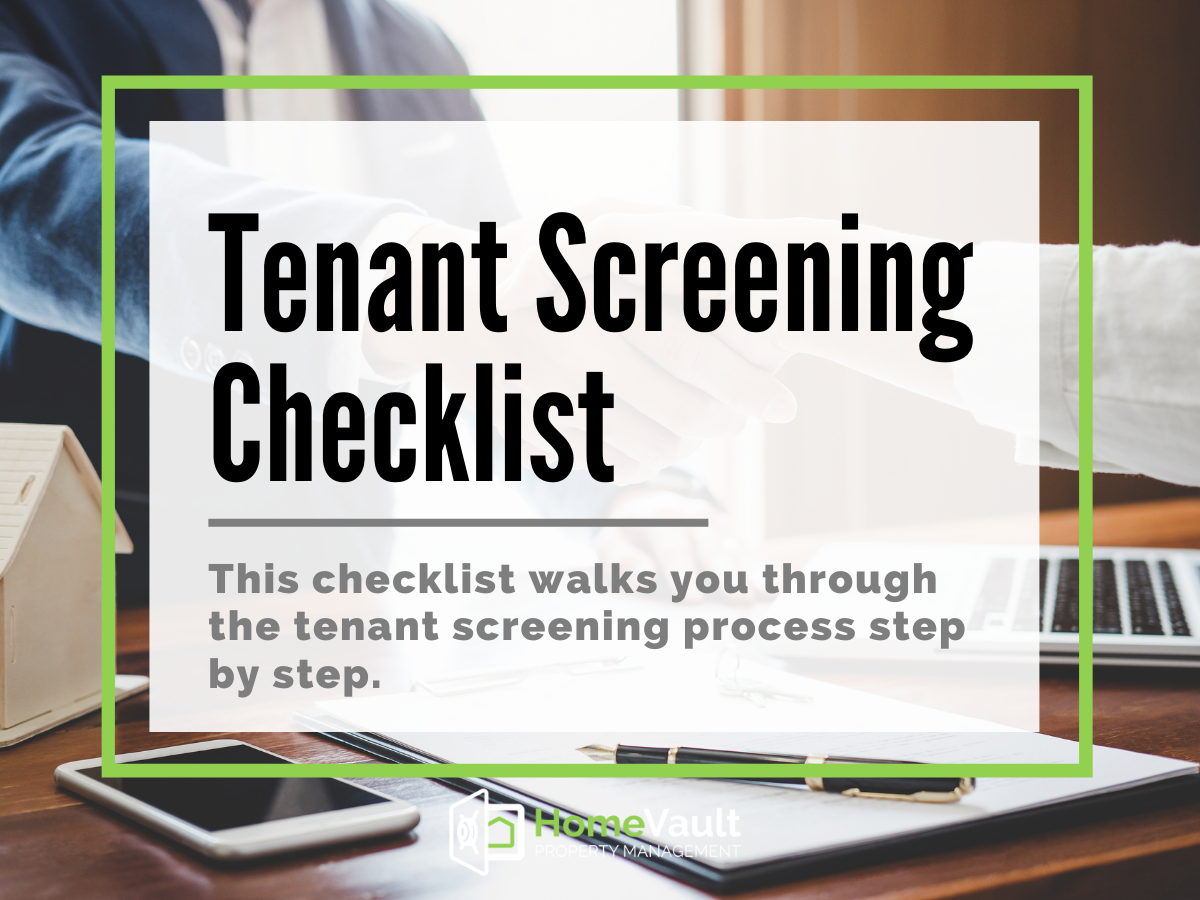How to Deal with Difficult Tenants: Avoiding, Spotting, and Dealing with a Bad Tenant

Months of unpaid rent, damage to the property, eviction court costs, attorney or other legal costs, dozens of hours of your time wasted. Seasoned landlords already know it well: dealing with a bad tenant, and particularly going through an eviction, may be very costly. That’s why it is critical as a DIY landlord to pay great attention to selecting the proper tenant for your property. We’ve written in detail about that in our article about the basics of tenant screening, so make sure you check it out in case you are not familiar with tenant background checks.
Sometimes, despite your best efforts, you may happen to allow on your property a tenant who is unreasonable and difficult, and that’s what this article is all about. We’ll walk you through identifying difficult renters, how to protect yourself from bad tenants, and, in case you happen to have them renting your property already, how to deal with difficult tenants. Let’s start with how to figure out if someone is a difficult tenant.
What makes a bad tenant?
Table of Contents
The first signs of a bad tenant may appear when you are talking to them prior to signing the lease, and they appear unruly. Sometimes landlords ignore such discussions because everything else about the prospective tenant appears to be okay. Other landlords are in such a hurry to get a property back producing revenue that they go ahead and rent to any person. It’s only when a tenant begins to make a series of statements or excuses as to why they can’t comply with your requests for information, you should realize that you may deal with a potentially bad tenant. You should not stop there with the discussion, but be proactive and ask a series of questions meant to clarify if your prospective tenant is reasonable. Follow-up questions may include:
- Have you ever been convicted of a crime?
- Have you ever filed suit against a landlord?
- Do you have a water bed, an aquarium or any other water filled furniture?
- Are you a smoker?
- Have you had two or more late payments in the past year?
- Have you given proper notice to your current landlord?
- Have you been in your current field of employment for more than 36 months? If not, how long have you been in your current field of employment?
- Were you referred by a friend? If so, please let us know who. If not, please let us know how you heard about us.
- What is your intended duration of stay at the premises, if approved?
- Do you have any other information that we should know that would help us in our decision making process?
- Have you viewed the property in which you are applying for?
Let’s dig into the other aspects that may indicate you are dealing with unruly tenants. Roughly there are 4 items on the list:
- Eviction history
- Past rental performance
- Lease violation history
- Former landlord complaints
However, you must also understand that this list of items is not written in stone and is not a clear rule to judge your applicants by. Everyone has their tough moments in life, or when they make mistakes, so if a tenant has a history of evictions or lease violations, it does not mean that they are necessarily difficult tenants. Although such a history of poor rental performance, as we said, may not automatically mean that someone is a difficult tenant, you may want to keep an eye on it as a potential source of future issues with the tenant.
How to avoid bad tenants
The short and best answer to how to protect yourself from bad tenants is proactive tenant screening, including credit reports, criminal checks, eviction reports, income verification, character references, and rental history verification with several past landlords. If you don’t know which tool you should use for tenant screening, check this article in which we reviewed the best tenant screening apps for landlords.

Set yourself up for success with the HomeVault Tenant Screening Checklist, an easy to follow, step-by-step process of everything you need to do when searching for a tenant, from receiving applications to selecting the perfect tenant and signing up the property management agreement.
DownloadThe second must-have in order to avoid dodgy tenants is setting the correct expectations right from the beginning. When tenants have clarity on the rules they can’t claim any miscommunication when they break them.
In addition to the above, you should also make sure you follow these tips:
- Follow up. Don’t just ask the applicant for the employer and past landlord contact info and not use it. Call those sources up and get more details on the potential tenant before moving forward.
- Be patient. Take your time when looking for a new tenant. Rushing to fill a vacancy might make you less thorough in evaluating a renter (or just less choosy).
- Have an iron-clad lease. Cover all the details, have the rental agreement reviewed by an attorney and leave no room for error or misinterpretation.
- Do a thorough property inspection. Be diligent when inspecting a rental property before move-in, and ask your tenants to do the same. Make sure they know they’re responsible for anything that’s damaged once they move out.
- Be flexible. Be ready to allow late payments once in a while, when needed.
- Perform annual inspections. Maintain an annual inspection of the house to double-check if everything is ok.
- Stay in touch. Communicate often with your tenants throughout their lease.
Lastly, have your attorney on hand just in case. You never know when things turn sour, and having a legal professional can help you avoid costly litigation or eviction.
How to deal with difficult tenants
Alas, despite your best efforts, you ended up renting your property to a difficult tenant. Don’t despair, there are solutions to dealing with unruly tenants. First and foremost, you MUST stay calm and collected when dealing with a problematic tenant, and oftentimes, in case of minor disagreements, this could be your key to success. But let’s delve deeper into the types of problems you may face, and what to do in those cases. Here’s a list:
- Late or No Rent Payment
- Illegal Subletting
- Disrupts The Neighbors
- Property Damage
- Illegal Use of The Property
Late or No Rent Payment
It is no surprise that late or non-payers make the top of the list of problematic tenants. Late payments, no payments, or partial payments can wreak havoc on your financial stability. No matter how hard you try, chances are, you will come across late payments now and again.
In some instances, tenants can withhold rent from landlords for different reasons, from lack of funds or hard times, to repair and maintenance disputes. Communication is critical when you’re facing these issues, so try to understand the tenant and the nature of the problem and negotiate, if possible.
When your tenant faces cash flow problems, you may want to offer them multiple payment options. A good landlord should recognize that their tenants struggle with their bills and be flexible once in a while. Another effective way to collect rent is to prorate the late fees and overdue rent over the remainder of the tenant’s lease.
If that doesn’t work, you could negotiate partial weekly payments to help the tenant with cash flow and even use a portion of the security deposit to help ease the strain on your tenant’s pocket. However, make sure you set a very strict payment plan and follow-up to ensure that the tenant is compliant with the payment plan. Tenants best suited for flexible payment plans are those with short-term financial problems.
As a landlord, you should try to be flexible when tenants run into financial burdens and can no longer afford the rent. The options could vary from moving them to a more affordable unit if you happen to own multiple properties, to recommend that they get a roommate or a guarantor. You are guaranteed with tenants for life if you are going the extra mile, particularly when you offer options to your tenants.
Although if you fail to resolve the problem, it’s advisable to convince the tenant to move out of the house voluntarily and explain the long-term impact of eviction on their credit and rental history to help convince them to end their lease. A tenant leaving of their own free will is a better option than facing the legal hassle that an eviction entails.
Illegal Subletting
As a landlord, you may be faced with a case of “secret subletting.” That’s when the legal tenant has rented out a room or the entire unit to another person or group without informing you.
Your worst nightmare is when a tenant turns your property into Airbnb or sublets your house to students in some cases causing damage to the property. You should make sure to include an exclusive clause that protects you as the landlord in the lease. Such a clause communicates that the legal tenant is the only one who can legally occupy the building. It also communicates that other individuals who are not named on the lease may not sublet the property.
On the other hand, you don’t necessarily find subletting a problem, communicate this in the lease and verbally. Tenants should be informed that they must put it in writing if they wish to sublet, so as to allow you as the landlord to take the tenant through the same screening process you use for all your tenants.
However, make sure to protect yourself by including terms in your lease that list your subletting rules taking into consideration the laws on subletting in your state, which may vary from state to state.
Disrupts the Neighbors
Performing a thorough tenant screening can eliminate tenant problems and will definitely not prevent future squabbles between neighbors. Tenants may have fall-outs due to activities that negatively impact their neighbors.
It’s best not to get involved in such disputes by suggesting that all tenants resolve disputes amongst themselves. Also add to the clause that so as to avoid losing a tenant due to a resolution that might not please the other tenant, you can not get involved.
Should you hear about the conflict between two tenants via another resident in the unit. Be sure to remind them of the terms of the contract and the consequences, such as eviction.
If tenants are not willing to behave or be amicable towards each other, you may have to intervene. Should the mediation not work or both tenants are not willing to cooperate. You will need to explain the consequences to help find a resolution and remind them that this impacts them, not you.
Property Damage
Tenants can leave landlords with unnecessary high repair costs. Unfortunately, you may incur high costs from a tenant’s negligence resulting in severe damage before vacating a property.
There is a huge difference between normal wear and tear and purposeful property damage. Regardless of this, it is always good to document the state of the property: Make sure to take pictures of the property before it is rented and after the tenant moves out. It’s best that your pics have a time and date stamp, which can help prove your case in court.
You must always safeguard your investment by taking a property insurance policy specially designed for landlords. You need a policy that covers your liability when the building is rented out from the damage caused by your tenant and natural causes. Imagine a scenario whereby you have not insured your property, there are so many cases of fires or floods caused by bad tenants resulting in very severe damage to your property. We recommend that insuring your property with liability coverage will also protect you against lawsuits.
You need to thoroughly analyze the repairs needed and the total estimated cost. Be sure to record an itemized list of these costs should you need to handle tenant damage on the property and make deductions to their security deposit. Make sure you have all the facts and you are sure that the tenant directly caused the damage (rather than a natural disaster, flooding, etc.).
If the tenant is responsible for the damage you will need to communicate to them verbally and in writing with a detailed quotation of the estimated cost to repair the damage. In some instances, the tenant may refuse to pay, which may result in you taking legal action.
Scenarios like the above make it so important that you carry out a yearly maintenance inspection which may indicate earlier whether a tenant is negligent or not. If a tenant is negligent and not taking good care of the property, you can choose to end the tenancy on these grounds.
Illegal Use of the Property
You could find a tenant raising red flags and you discover that your tenant is involved in illegal activities. You must never turn a blind eye to this type of difficult tenant, as their illegal dealings might involve the illegal growing of marijuana, selling or abusing illegal drugs, manufacturing illegal materials within the home and so much more.
If your tenants are doing anything illegal, it can lead to serious legal and liability issues for you. If you discover your tenant performing criminal acts, the best thing you can do is to alert the authorities and immediately start the eviction process.
You will also need to seek counsel to effectively resolve the issue without any form of liability on your hands for the criminal conduct of your tenant. A lawyer will advise you on your options and whether you stand to be charged.
However, keep in mind that it’s illegal to discriminate against prospective tenants with a criminal history.
How to Evict Bad Tenants
Eviction may be the solution to getting rid of difficult/bad tenants and there are different ways to handle an eviction. The simplest way is if you’re doing “cash for keys”, meaning you offer to pay your tenant to move out. This will ease the process if you and the tenant are both on the same page about terminating the tenancy.
The alternative is the eviction proper. In this case, you would need to go to court to file eviction papers. You would need to give the tenant an eviction notice, and attend countless hearings and court dates. The eviction process differs by state quite considerably. While there are states which pass as landlord-friendly, others tend to have a tenant-friendly Law, so make sure you have a look at the landlord-tenant Law in your state to set your expectations correctly.
The eviction process, in general, is a complicated, costly, and often tiring process, so we suggest only following through with it if all else fails. If you feel you are ready to begin formal eviction proceedings make sure you do not go down this path alone. Hire legal counsel to help you take the proper legal procedures. When landlords take matters into their own hands (also known as “self-help” evictions), they tend to have no legal leg to stand on when the tenant escalates matters. It is not advisable to repossess the tenant’s property without a court order could leave you swimming in very murky waters.
It’s important to be prepared, by making sure you keep records of all communication with your tenant that may be helpful in proving that throughout the entire lease you made sure to caution or advise bad tenants against their unruly actions. Always make sure your lease agreement addresses as many eventualities as possible!
In Conclusion
Exercising the ideal way on how to deal with difficult tenants will save you from potential litigation and a ton of headaches. In most cases, your lease agreement will protect you from liability.
Therefore, it is imperative that you make sure to use specific language in your agreement to avoid loopholes. But, as they say, prevention is better than the cure, and you can spare yourself a lot of time and trouble by screening your tenants thoroughly.
Most of all, avoid this mess in the first place, with thorough tenant screening and consistent lease enforcement. An ounce of prevention will keep your rents inbound and your properties undamaged.
Credit: Photo by Binyamin Mellish from Pexels



Leave a Reply